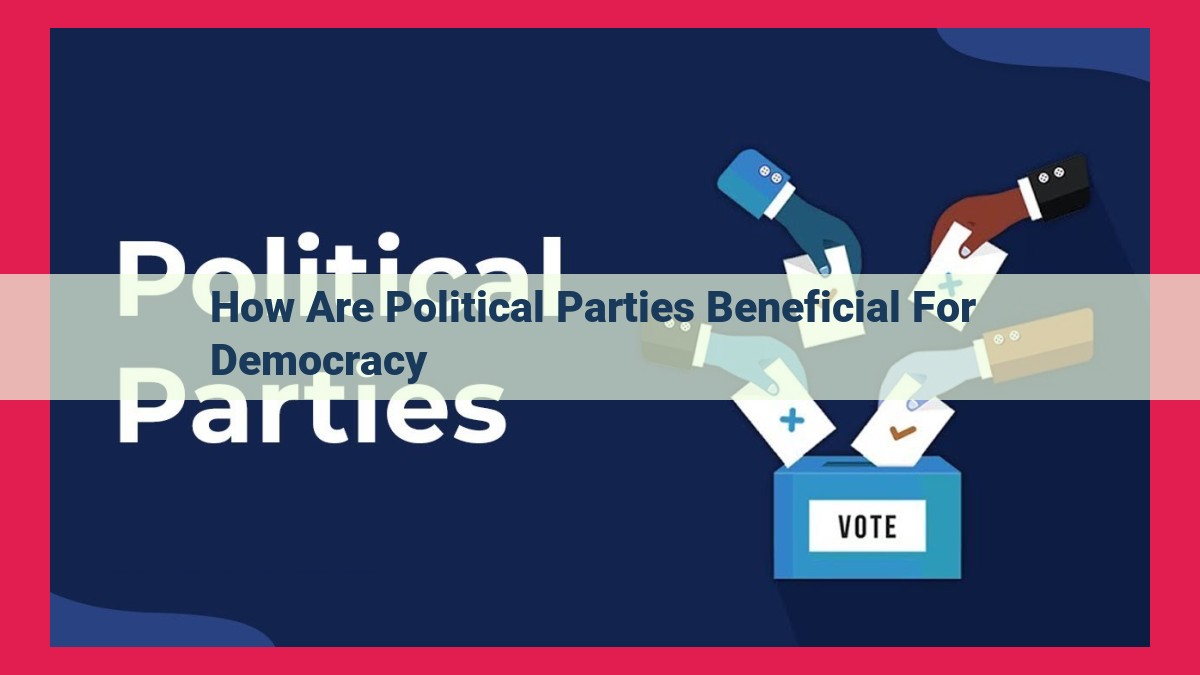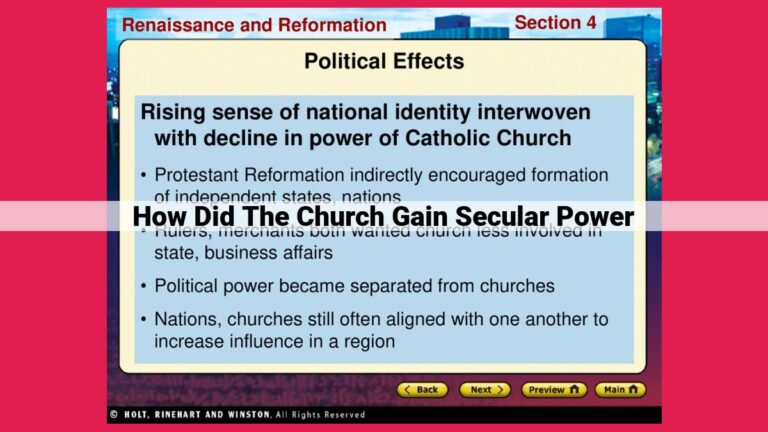The Vital Role Of Political Parties In Strengthening Democracy: A Comprehensive Guide

Political parties enhance democracy by organizing public opinion through surveys and shaping political discourse; facilitating participation through voter mobilization and candidate platforms; aggregating diverse interests into coherent platforms; formulating policies by setting the legislative agenda and developing solutions; and ensuring accountability through elections, party monitoring, and media scrutiny.
Organizing Public Opinion
Political parties are the linchpin of modern democracy, serving as conduits for public opinion and shaping the political landscape. One of their paramount functions is to aggregate and consolidate the diverse views of the populace.
Through surveys and public forums, parties collect and distill raw public sentiments. These platforms allow citizens to voice their concerns, influence policy agendas, and hold their elected representatives accountable.
Moreover, political parties play a pivotal role in shaping public discourse. They engage in debates, disseminate policy proposals, and mobilize their supporters to advocate for their respective ideologies. By articulating different perspectives and fostering constructive dialogue, parties inform and enrich the public debate.
Facilitating Political Participation
Political parties are the linchpin of any democratic society. They play a crucial role in engaging citizens, mobilizing voters, and providing a platform for candidates to represent the will of the people.
Mobilizing Voters and Empowering Citizens:
Political parties serve as a catalyst for political participation. They reach out to the electorate, encouraging citizens to exercise their right to vote. They organize rallies, mobilize volunteers, and run campaigns that energize the public and increase voter turnout. By getting more people involved in the political process, parties ensure that the voices of all citizens are heard.
Providing a Platform for Candidates:
Parties are not just about mobilizing voters; they also play a vital role in nurturing and supporting candidates. They provide a platform for individuals to voice their ideas and present their visions for the future. Through primaries and caucuses, parties identify candidates who resonate with their principles and serve as their standard-bearers in elections. This process ensures that a diverse range of perspectives is represented, giving voters a choice in how their country is governed.
Connecting Voters with Elected Officials:
Political parties act as a bridge between voters and their elected representatives. They serve as channels of communication, allowing citizens to express their concerns and have their interests considered in policy-making. By engaging with communities and holding regular meetings, parties foster a sense of connection between voters and their elected officials. This connection enhances accountability and ensures that the government remains responsive to the needs of the people it serves.
Political Parties: Aggregating Interests for Coherent Policy-Making
Political parties play a pivotal role in aggregating diverse societal interests into coherent platforms that guide their policy proposals and actions. This process is essential for ensuring that a broad range of perspectives and viewpoints are represented in the policy-making process.
The Role of Political Parties in Aggregating Interests
Political parties serve as intermediaries between citizens and government, providing a structured framework for individuals to articulate and advance their interests. Through a multitude of channels, including surveys, public forums, and party conventions, parties gather inputs and opinions from various gesellschaftliche groups.
Coherent Platforms: A Guiding Compass for Policy-Making
The process of interest aggregation culminates in the formulation of party platforms. These platforms outline the party’s core principles, values, and priorities. By aggregating diverse interests into unified positions, parties provide clear direction for their elected officials and establish a framework for policy-making.
Representation of Various Perspectives
By aggregating interests, political parties ensure that a multitude of viewpoints are represented in the policy-making process. This process fosters inclusivity and legitimacy, as diverse societal groups feel that their interests are taken into account. The resulting policy decisions reflect the collective will of the citizenry and are more responsive to the needs of society.
The aggregation of interests by political parties is a critical function that ensures balanced and representative policy-making. By providing a structured framework for diverse interests to be heard, parties contribute to democratic governance and the creation of responsive policies that serve the greater good.
Formulating Policies: The Essential Role of Political Parties
When it comes to shaping the policies that govern our lives, political parties play a pivotal role. They serve as the gatekeepers of ideas, filtering and prioritizing issues that demand legislative attention.
Political parties are more than mere debating societies. They are powerhouses of policy analysis, engaging in thorough research and analysis to develop comprehensive solutions to complex societal challenges. Through their vast networks of experts and stakeholders, parties can gather diverse perspectives and present coherent platforms that address a broad spectrum of needs.
This agenda-setting function is crucial for ensuring that the most pressing issues are addressed. By setting priorities and focusing debates, parties can steer the legislative agenda towards meaningful outcomes. They act as the conduit between public concerns and actionable policies, bridging the gap between theory and practice.
Moreover, parties’ involvement in policy formulation extends beyond merely presenting ideas. They are actively engaged in the drafting and passing of legislation, using their collective strength to advance their agendas. By influencing the legislative process, parties ensure that their policy proposals have a real impact on the shape of society.
The coordination and collaboration within parties are essential for effective policy-making. Members of the same party share a common ideology and set of values, which enables them to work together towards a consensus. This unity allows parties to present a unified front, giving them a stronger voice in the policy-making process.
In conclusion, political parties are indispensable in the formulation of public policies. Their ability to aggregate interests, conduct thorough analysis, set the legislative agenda, and coordinate efforts empowers them to provide comprehensive responses to gesellschaftliche challenges. As the gatekeepers of ideas, parties ensure that the most pressing issues are addressed and that the policies enacted reflect the will of the people they serve.
Ensuring Accountability: The Vital Role of Elections, Parties, and Media
Elections: Empowering Citizens to Hold Officials Accountable
Elections are the cornerstone of democratic societies, granting citizens the power to hold their elected officials accountable. By casting their ballots, voters send a clear message about the performance and policies of those in power. The threat of being voted out of office acts as a powerful incentive for officials to respond to the needs and concerns of their constituents.
Parties’ Role in Monitoring and Responding
Political parties play a crucial role in ensuring accountability by monitoring the actions of their members. When a party member engages in misconduct or fails to fulfill campaign promises, the party has the responsibility to investigate and take appropriate disciplinary action. This sends a strong signal that the party is committed to ethical behavior and public trust.
Media Scrutiny: A Vigilant Watchdog
The media serves as an essential watchdog, exposing wrongdoing and holding officials accountable. Investigative journalists uncover corruption, mismanagement, and other abuses of power. By disseminating this information to the public, the media empowers citizens to make informed decisions about their representatives.
Transparency and Responsiveness
Transparency and responsiveness are key elements of accountability. Elected officials must disclose their financial interests, meeting schedules, and other information that could potential conflict with their public duties. The media and civil society organizations play a vital role in monitoring these disclosures and demanding accountability when necessary.
Ensuring accountability is paramount for the health of any democratic society. Elections, political parties, and the media work together to empower citizens, monitor officials, and promote transparency. By holding those in power responsible for their actions, we safeguard our democratic institutions and create a responsive government that truly serves the people’s interests.





